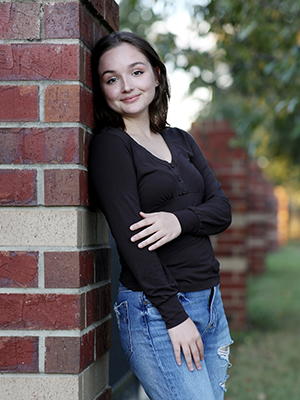
Image courtesy Annika Trout, all rights reserved.
When Georgia Institute of Technology student Annika Trout learned she’d be improving a Wikipedia article for her Introduction to Environmental Sciences class this fall, she felt like it would be an interesting change from her typical research essay or presentation.
“I also felt daunted by the challenge – it seemed like a huge responsibility to deliver accurate, reliable, and objective information to the general public,” she says. “I remember being impressed by the examples of articles provided by my professor that past students had written, and I knew that I wanted to try to produce the best article that I could.”
Annika succeeded, substantially improving the stub article on non-aqueous phase liquid. Annika’s professor, Jennifer Glass, had created a list of “stub” articles in environmental sciences — short articles needing improvement — and asked Annika and her classmates to rank their interest in the topics. Annika ranked non-aqueous phase liquid first due to her interest in hydrology and the subsurface environment, so she was assigned it.
Annika says she likes to divide projects into smaller tasks and work over long periods of time, which she did for this project. She started researching, collating notes and identifying topics she needed to seek more information on. She began drafting, then re-organized her notes for a more natural flow, and finally began revisions.
Throughout the way, she learned not just about her topic, but also about the process of research and writing.
“I learned a lot about my capabilities as a student/researcher/writer. I learned that with dedication and patience, it is possible to produce a body of work to be proud of. I also learned how important it is to be intentional with organization when writing a research article. It’s important to keep track of the information gathered and what source it came from,” Annika says. “It’s also important to evaluate sources and corroborate ideas between sources. The revision process is also very important, as is peer review. It was important that I had friends and colleagues read and comment on my work so that I could revise parts of the article that needed more clarity.”
Annika attempted to submit her revision for a feature on Wikipedia’s home page, in the “Did you know?” section, but unfortunately she missed the cutoff window for submission. Still, she got great feedback from other Wikipedia editors on her article by engaging in the process.
Having other Wikipedia editors and the general public being able to read her work really motivated Annika.
“Its reliability as a source depends on the fact that the community works together to publish accurate and reliable information. For me, this provided a special incentive to do a good job because good work would invite more eyes to vet my work and make it even more useful for the public,” she says. “It was meaningful to me to be able to take information that might be inaccessible to the public and faithfully translate it into something that people could interact with and understand. Wikipedia assignments are a brilliant way to engage students in experiential learning by plunging them into the research process while simultaneously using their unique talents to make knowledge more accessible. “
Annika did struggle to find images relevant to her article. Being able to create her own images would have been helpful, but she felt stymied by a lack of graphic design skills. Nevertheless, she found the skills she gained from writing for Wikipedia valuable to her future career path. She aspires to a career addressing the global challenges posed by climate change.
“I don’t yet know what my professional role will look like, but for now, I’m focused on expanding my knowledge of the sciences as well as my unique skill set so that I can be a useful resource, whether that be through policymaking, conservation efforts, or development projects,” Annika says. “I absolutely think that my experience writing for Wikipedia helped me move closer to that ideal. It’s vitally important with a problem like climate change to be able to communicate reliable information, especially within a digital space. I learned about how information can be presented in different ways to achieve different effects and the value of objectivity in scientific writing.”
Annika intends to continue editing Wikipedia now that she’s learned how. She says this assignment shifted her perspective on Wikipedia, and she encourages other students editing as a class assignment to approach the assignment with enthusiasm.
“This assignment was one of my favorites I ever completed for school. It not only helped me expand my specific academic interests, but also provided me with a challenge that I could face and grow from,” Annika says. “Wiki Education is such a fantastic opportunity for students to pour their energy into a project with tangible positive impacts. I feel lucky and grateful that I was given that opportunity, and I encourage other students within Wiki Education to take pride in their work and give it their all!”
Wiki Education’s support for instructors who want to with Wikipedia are available at teach.wikiedu.org. Our support for STEM classes like Annika’s is available thanks to the Guru Krupa Foundation.
